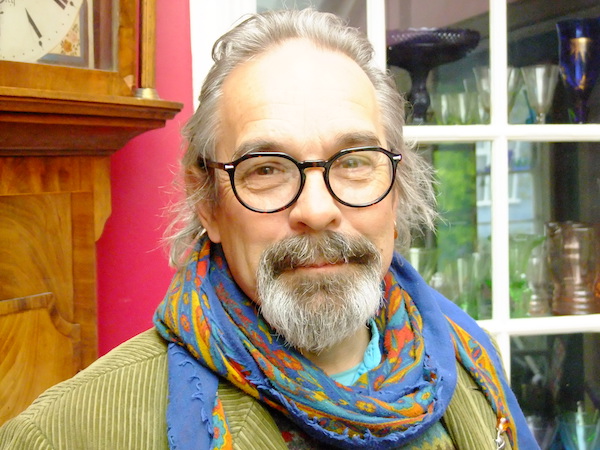Jan 13, 2026 2:09 PM
More Trump-Kennedy Center Cancellations
The fallout from the renaming of the John F. Kennedy Center for the Performing Arts to include President Donald…

To mark the 50th anniversary of the Apollo moon landing, Roger Eno (shown here), his brother Brian Eno and Daniel Lanois revisit and expand upon their 1983 soundtrack, Apollo: Atmosphere and Soundtracks.
(Photo: Cecily Eno)It’s one thing to commemorate an important anniversary. It’s another to revisit the past and make something new from that original footprint.
Fifty years since the July 20, 1969, Apollo 11 moon landing, the latter is exactly what composer Brian Eno, pianist Roger Eno and guitarist/producer Daniel Lanois did with their collaborative album, Apollo: Atmospheres And Soundtracks, a record which served as the sonic backbone to the 1983 Apollo 11 documentary, For All Mankind.
Set for release July 19, Apollo: Atmosphere and Soundtracks—Extended Edition was an ideal stage for musical perspective and personal reflection for all three artists, as the two-disc project marked the trio’s first time working together in more than 30 years. This latest edition of the album finds the original 12 tracks remastered and supplemented by an additional 11 cuts, all newly devised for the occasion.
For Roger Eno, the 1983 release served as his first-ever recording opportunity. And in a recent conversation he explained how the original sessions went, as well as ambient music’s place in contemporary culture.
The following has been edit for length and clarity.
What was it like for you working with Brian and Daniel again after each developing your own identities as artists?
We worked completely differently from how we did in ’83, because we worked at a distance [this time]. Danny and I sent MIDI files to Brian: Dan sent them from his studio in Los Angeles and I sent them from my studio here in Suffolk, U.K.
Essentially, we wrote three pieces each that Brian treated, and that became the second Apollo album. So, we didn’t see each other and weren’t in the same room as each other during the process, which is completely different from the original. [Back then], we were locked in together for weeks. It made things very easy to work. The drawback, of course, is that I like those two very much. You know, we get on as friends, so that aspect was missing for me. In the original Apollo recording, what you hear is a great record. But what you don’t hear or see is the enormous fun we had making it. I mean really belly-laughingly great fun. So, that kind of aspect I missed slightly, yeah.
The other thing is that, technology has changed so much that it seemed kind of proper to do it this way, because we couldn’t have done it that way in the ’80s; there was no internet. So, why not use the technology that’s now quite common?

Belá Fleck during an interview with Fredrika Whitfield on CNN.
Jan 13, 2026 2:09 PM
The fallout from the renaming of the John F. Kennedy Center for the Performing Arts to include President Donald…

Peplowski first came to prominence in legacy swing bands, including the final iteration of the Benny Goodman Orchestra, before beginning a solo career in the late 1980s.
Feb 3, 2026 12:10 AM
Ken Peplowski, a clarinetist and tenor saxophonist who straddled the worlds of traditional and modern jazz, died Feb. 2…

The success of Oregon’s first album, 1971’s Music Of Another Present Era, allowed Towner to establish a solo career.
Jan 19, 2026 5:02 PM
Ralph Towner, a guitarist and composer who blended multiple genres, including jazz — and throughout them all remained…

Rico’s Anti-Microbial Instrument Swab
Jan 19, 2026 2:48 PM
With this year’s NAMM Show right around the corner, we can look forward to plenty of new and innovative instruments…

Richie Beirach was particularly renowned for his approach to chromatic harmony, which he used to improvise reharmonizations of originals and standards.
Jan 27, 2026 11:19 AM
Richie Beirach, a pianist and composer who channeled a knowledge of modern classical music into his jazz practice,…